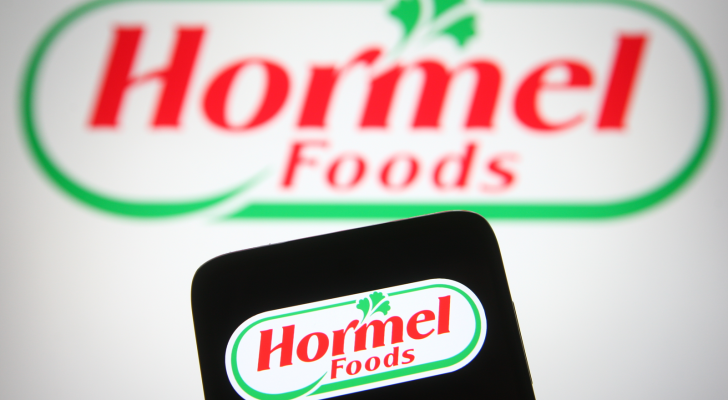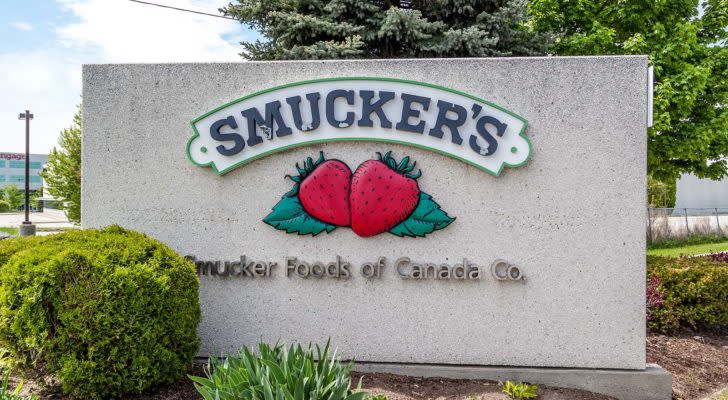3 Low-Beta Dividend Stocks to Reduce Portfolio Volatility
Investors need to be aware of the volatility of their stocks. Owning too many high-volatility positions can create a scenario in which your portfolio loses more than the S&P 500 index during bear markets.
The higher the beta, the more volatile the stock is expected to be relative to the S&P 500 index. Low-beta stocks generally decline less than the broader market in a downturn. For example, a stock with a beta value of 0.5 will decline 0.5% for every 1% decline in the S&P 500.
Typically, low-beta stocks are heavily concentrated in industries such as food and beverages or utilities. These sectors hold up well during recessions, as consumers need products and services like food and electricity, even during economic downturns.
InvestorPlace - Stock Market News, Stock Advice & Trading Tips
These three low-beta dividend stocks have all increased their dividends for over 25 years and could outperform in a bear market.
Hormel Corporation (HRL)

Source: viewimage / Shutterstock
Five-year average monthly beta: 0.19
Hormel Foods (NYSE:HRL) is a diversified food producer with about $12.5 billion in annual revenue. Hormel has kept its core competency as a processor of meat products for well over a hundred years but has also grown into other business lines through acquisitions. The company sells its products in 80 countries worldwide, and its brands include Skippy, SPAM, Applegate, Justin’s and more than 30 others.
Hormel posted third-quarter earnings on Aug. 31, and results were weaker than expected on both the top and bottom lines. Adjusted earnings-per-share came to 40 cents, which missed estimates by a penny. Revenue fell 2.3% year-over-year to $2.96 billion, which missed consensus by $90 million.
Retail segment volume was up 1%, while net sales fell 2%, and segment profit was down 7%. Foodservice volume was up 2%, while net sales fell 3%, but segment profit rose 14%. The international segment saw volume decline 10%, while net sales fell 6%, and segment profit was cut in half. We expect forward earnings growth of 4% annually in the next five years.
Hormel has increased its dividend for 57 consecutive years. The dividend payout ratio is just over 60% of earnings, and we expect that it will remain near this level for the foreseeable future. Hormel’s main competitive advantage is its roughly 40 products that are either no. 1 or no. 2 in their category. Hormel has brands that are proven. That leadership position is difficult for competitors to supplant.
HRL stock has a five-year average monthly beta value of 0.19. This means that for every 1% decline in the S&P 500 index, HRL stock can be expected to decline by just 0.19%.
Consolidated Edison (ED)

Source: BrandonKleinPhoto / Shutterstock.com
Five-year average monthly beta: 0.36
Consolidated Edison (NYSE:ED) is a holding company that delivers electricity, natural gas and steam to its customers in New York City and Westchester County. The company has annual revenues of more than $14 billion.
In the 2023 second quarter, revenue decreased 13.8% to $2.94 billion. Adjusted earnings of $210 million, or 61 cents per share. That’s compared to adjusted earnings of $228 million, or 64 cents per share, in the previous year. As with prior quarters, higher rate bases for gas and electric customers were the primary contributors to results in the CECONY business, which accounts for the vast majority of the company’s assets. Average rate base balances are expected to grow by 6% annually over the next three years.
Consolidated Edison provided updated guidance for 2023 as well. The company now expects adjusted EPS in a range of $4.85 to $5 for 2023. That’s up from $4.75 to $4.95 previously. At the new midpoint, this would be a 7.9% increase from the prior year.
Thanks to steady growth from rate hikes and population growth, the company has been able to raise its dividend for nearly five decades. ED stock currently yields 3.7%.
Just like most other utilities, Consolidated Edison is typically allowed by regulatory authorities to raise its rates. As a result, it enjoys reliable cash flows and can thus service its debt. One key competitive advantage for Consolidated Edison is that consumers do not curtail their electricity consumption even during the roughest economic periods, so the stock is resilient during recessions.
J.M. Smucker (SJM)

Source: JHVEPhoto / Shutterstock.com
Five-year average monthly beta: 0.22
J.M. Smucker (NYSE:SJM) is a global packaged food and beverage products company with iconic brands like Smucker’s, Jif and Folgers, along with pet food brands like Milk Bone, Meow Mix, Kibbles ‘n Bits and 9Lives. The company generated $8 billion in sales last year.
In late August, Smucker’s reported financial results for the first quarter of fiscal 2024. Currency-neutral organic sales grew 21% over the prior year’s quarter thanks to strong volume sales of peanut butter and coffee products as well as price increases.
Adjusted EPS grew 32%, from $1.67 to $2.21, and exceeded the analysts’ estimates by 17 cents, as price hikes more than offset the increased costs of commodities, ingredients, manufacturing and packaging costs.
Thanks to better-than-expected results, material price hikes and sustained positive business trends, Smucker’s improved its already positive outlook for fiscal 2024. The company still expects comparable sales growth of 8.5%-9.5% but raised its guidance for adjusted EPS from $9.20-$9.60 to $9.45-$9.85.
Smucker’s iconic brands continue to enjoy recognition, but this moat is eroding somewhat as consumers look for fresher and healthier alternatives. During the last recession, Smucker’s held up exceptionally well, growing both earnings and dividends during this time.
SJM has increased its dividend for 26 consecutive years. Shares currently yield 3%. With a forward dividend payout ratio of 52%, the current payout is highly secure, with room for continued dividend increases each year.
On the date of publication, Bob Ciura did not hold (either directly or indirectly) any positions in the securities mentioned in this article. The opinions expressed in this article are those of the writer, subject to the InvestorPlace.com Publishing Guidelines.
Bob Ciura has worked at Sure Dividend since 2016. He oversees all content for Sure Dividend and its partner sites. Prior to joining Sure Dividend, Bob was an independent equity analyst. His articles have been published on major financial websites such as The Motley Fool, Seeking Alpha, Business Insider and more. Bob received a bachelor’s degree in Finance from DePaul University and an MBA with a concentration in investments from the University of Notre Dame.
More From InvestorPlace
Musk’s “Project Omega” May Be Set to Mint New Millionaires. Here’s How to Get In.
ChatGPT IPO Could Shock the World, Make This Move Before the Announcement
It doesn’t matter if you have $500 or $5 million. Do this now.
The post 3 Low-Beta Dividend Stocks to Reduce Portfolio Volatility appeared first on InvestorPlace.
